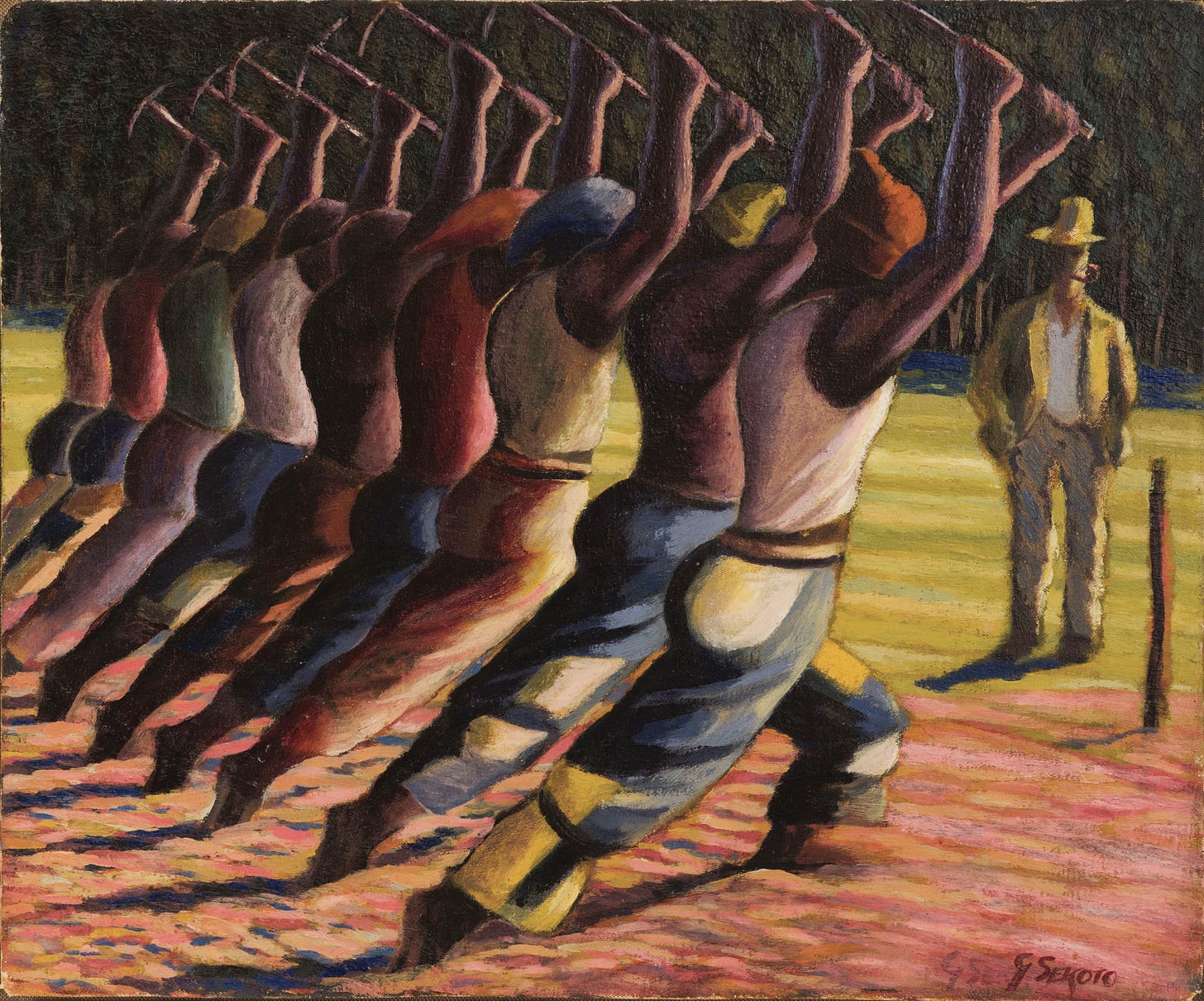South Africa’s rise to modernity was far from the gradual, organic kind seen in Europe’s transition from feudalism. It was an altogether more brutal and rapid transformation built on the backs of migrant labour conscripted to exploit the discovery of gold and diamonds in the late 1800s. “Stimela“ tells the story of these workers and their sorrow at leaving their homes through vivid musical imagery.
Background
In the late 1800s, black men from South Africa and her neighbouring countries were forced to migrate to the mineral-rich mines of Kimberley and Johannesburg. Exploited into low-wage contracts equivalent to slavery, they left their homes and agricultural roots to endure the long rail journeys down to the mining towns.
Originally designed for transporting heavy equipment and other mining goods, the trains often forced miners to travel in cars meant for cattle or coal for up to 20 hours, with minimal ablutions and provisions. They also had to pay their own train fares, amounting to almost 17 days’ wages of work in the mines.
Hugh Masekela, born in the coal mining town of Witbank, would have been intimately familiar with these migrant workers and he masterfully weaves their story with the pulsating, hypnotic rhythm of the trains that carried them.
What it means to me
This song is a tribute to the people on whose back the wealth of South Africa was built. It’s a stark reminder of my home country’s troubled past—marked by discrimination, dispossession, and exploitative migrant labour which is still an issue post-apartheid. The 2012 Marikana massacre, where 34 striking mine workers were killed, serves as a poignant reminder of this.
It’s also a masterful act of musical storytelling told through the lyrics, the instruments, and Masekela’s powerful, yet haunting performance.
What to listen for
I love how the train is so clearly represented in this song. The cowbell at the beginning and throughout emulates the sound of a locomotive, with the rhythm section creating a repeating groove meant to mimic the movement of the wheels.
The lyrics and rhythm of Masekela’s singing also locks into that feeling of locomotion as in the part below which leads to the piercing “whooo whooo!“ of the train whistle:
"A-chugging, and a pumping, and a smoking, and a pushing A pumping, a crying and a steaming and a chugging and A whooo whooo!"
Suggested listening activity
A good accompaniment to this book: The Night Trains written by Charles van Onselen. It tells the tale of the exploitation of migrant workers through the eyes of Mozambican miners, focusing especially on the trains that carried them.
Further listening
Further reading
The history of Migrant Labour in South Africa | South African History Online
Marikana Massacre 16 August 2012 | South African History Online




